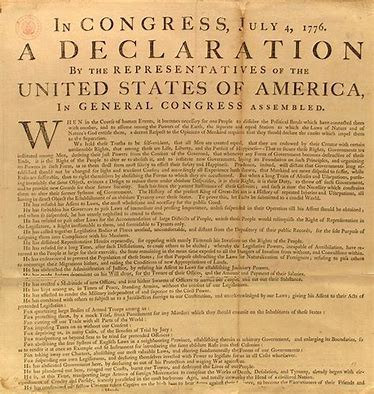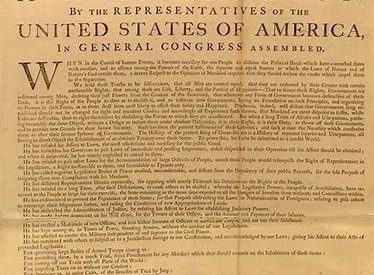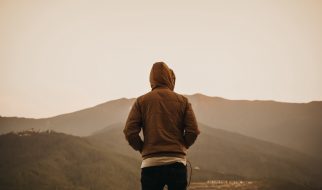
In the Declaration of Independence we are told that all men are created equal, but I think that this is actually one of the great lies that our society perpetuates. Especially, in democracies it is common to think of freedom and equality as essentially synonymous. Surely, they are both core values that must both be upheld in order to have any semblance of democracy.
In fact, I think the opposite ends up being true. Equality and freedom are directly opposed ? the more you have of one, the less you have of the other. As historians Will and Ariel Durant testify in The Lessons of History, ?freedom and equality are sworn and everlasting enemies, and when one prevails the other dies.?
How can this be the case? I think our misunderstanding of how equality and freedom relate stems from a misunderstanding of the process of evolution. If we were all truly born equal, as the Declaration claims, then there would be no evolution. We are all in fact born unique, with different amounts and types of intelligence, attractiveness, and a range of other physical and mental qualities. Naturally, these differences lead some to have natural advantages over others. These variations and differences are necessary for the process of evolution and natural selection to work.
This is not a fashionable way to think because throughout history natural differences between humans have been used to justify subjugation. While this is true, what I think turns out to also be true is if we reject reality and buy into the idea that we are all created equal, then we will necessarily end up subjugating others due to a misunderstanding of the way that freedom and equality relate to each other.
In order to understand how this can be the case, it is easiest to look at examples within society. If you look at relatively free societies, like democracies, you?ll see tremendous amount of inequality exist. In the United States, the hot issue now is income inequality. Similarly, there are inequalities in terms of social influence and political power. These inequalities exist in free societies because they allow the natural inequalities of humans to compound. In other words, left unchecked or free, the natural state of humanity is inequality. Similarly, if you look at relatively less free societies, like ones based on socialism or communism, you will see that the people are much more equal. Most people living in socialist or communist countries are around the same socio-economic status. While there may be more equality, the people in these societies have much less individual freedom. There is a tradeoff between equality and freedom.
Now, all of this exists on a spectrum with complete equality on one end and complete freedom on the other. All societies choose some balance that those in power elect as optimal. In most democracies, citizens still sacrifice personal freedoms in some cases for greater equality. For example, in the United States and in all democracies, individuals hand over large portions of their income in income taxes in order to ensure access for all to basic goods like schools, roads, and public infrastructure. Surely, people would have more individual freedom if they had complete control over how to spend all their money, but this tradeoff is made because it secures greater equality.
Why is this important to understand? As mentioned earlier, if we do not understand the true relationship between equality and freedom we may unwillingly end up advocating for the subjugation of others. This is because any attempts to create equality will necessarily result in the subjugation of people that have natural advantages over others. Is it better to be in a society that is free and lets natural inequalities among people persist, leading to widespread inequalities, or is it better to be in a society where personal freedoms are sacrificed and those with advantages are subjugated in order to create equality among people? This is obviously not a black and white issue, and it is beyond the scope of this short essay to discuss fully, but any answer must be founded on a correct understanding of how equality and freedom interact.


